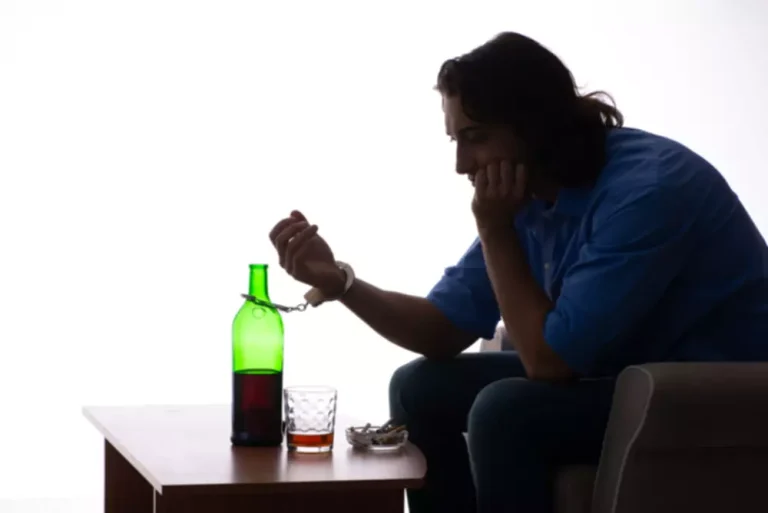
Long-term alcohol use can produce changes in the brain that can cause people to crave alcohol, lose control of their drinking and require greater quantities of alcohol to achieve its desired effects. It can also cause people to experience withdrawal symptoms if they discontinue alcohol use. Your doctor or healthcare provider can diagnose alcohol use disorder. They’ll do a physical exam and ask you questions about your drinking habits. Alcohol addiction may involve several different treatment methods. It’s important that each person get involved in a recovery program that will support long-term sobriety.
- Others may want one-on-one therapy for a longer time to deal with issues like anxiety or depression.
- Many people struggle with controlling their drinking at some point in their lives.
- The more symptoms you have, the more urgent the need for change.
What types of alcohol treatments are available?
Be prepared to discuss any problems that alcohol may be causing. You may want to take a family member or friend along, if possible. Explore Mayo Clinic studies testing new treatments, interventions and tests as a means to prevent, detect, treat or manage this condition. In 2019, an estimated 14.5 million people in the United States had an AUD.
action: ‘healthbeat’
While the process may take several years, the outcome is a happier, healthier life where you have the freedom to fulfill your full potential. The challenge of this stage is to essentially develop and maintain healthy life skills that will serve you for a lifetime. An exciting part of this period is that it can lead you to a happier life full of welcomed change and constant improvement.
Products & Services
- Motivational enhancement is conducted over a short period of time to build and strengthen motivation to change drinking behavior.
- Acceptance- and mindfulness-based interventions increase awareness and acceptance of present-moment experiences.
- Alcoholism is a disease that is absolutely treatable if the person is willing to seek the appropriate help available.
- A strong support system is helpful for making a complete recovery.
Your health care provider or counselor can suggest a support group. Clinicians call such a behavioral disorder a disease because it persists for years, is strongly hereditary, and is a major cause of death and disability. In addition, alcohol permanently alters the brain’s plasticity with regard to free choice over beginning or stopping drinking episodes. As with other medical diseases but unlike most bad habits, prospective studies demonstrate that willpower per se is of little predictive significance. When asked how alcohol problems are treated, people commonly think of 12-step programs or 28-day inpatient rehab but may have difficulty naming other options.


Instead, those seeking recovery must commit to a treatment and aftercare plan designed by professionals. People with severe or moderate alcohol use disorder who suddenly stop drinking could develop delirium tremens (DT). It can be life-threatening, causing serious medical issues like seizures and hallucinations that require immediate medical care. Just like any other medical condition, people with substance use disorders deserve to have a range of treatment options available to them. Scientists are working to develop a larger menu of pharmaceutical treatments that could be tailored to individual needs.

Understanding Alcohol Use Disorder

However, if someone who enjoys moderate drinking increases their consumption or regularly consumes more than the recommended quantity, AUD may eventually develop. People who’re dependent on alcohol may need to learn skills and coping mechanisms to help avoid alcohol once you leave a treatment center or return to familiar environments. If you or someone you know is living with an AUD, the good news is that there are many different treatment options, and your doctor can help you choose the best one for you. They may recommend detoxification, medication, or relapse prevention training. Ultimately, sobriety is the responsibility of the person who has the alcohol addiction. It’s important to not enable destructive behaviors and to maintain appropriate boundaries if the person with the alcohol addiction is still drinking.
- Alcoholism, referred to as alcohol use disorder, occurs when someone drinks so much that their body eventually becomes dependent on or addicted to alcohol.
- Each of these fee-based tools has a research base that shows its potential to help people cut down or quit drinking.
- To avoid a relapse at this stage, your mental health is vital.
Stay on top of latest health news from Harvard Medical School.
- Medically managed withdrawal or detoxification can be safely carried out under medical guidance.
- If you or someone you know is living with an AUD, the good news is that there are many different treatment options, and your doctor can help you choose the best one for you.
- Excessive alcohol consumption can damage the brain and other organs, and it also increases the chances of developing sleep problems, depression, and other mental health problems.
While the exact causes of alcoholism are not known, a number of factors can play a role. The condition is likely the result of a combination of genetic, social, psychological, and environmental factors. This guide is written for individuals, and their family and friends, who are looking for options to address alcohol problems. The most severe form of alcohol withdrawal is known as alcohol withdrawal delirium or delirium tremens, often referred to as the DTs.
What’s the outlook for a person with alcohol use disorder?
It is rare that someone would go to treatment once and then never drink again. More often, people try to quit or cut back over time, experience recurrences, learn from them, and then continue on their recovery journey. For many, continued follow-up with a treatment provider can alcoholism be cured is critical for overcoming alcohol problems. The provider can help adjust the treatment plan and aid long-term recovery. Your provider may also be able to suggest an online self-guided program. Such e-health tools have been shown to help people overcome alcohol problems.
